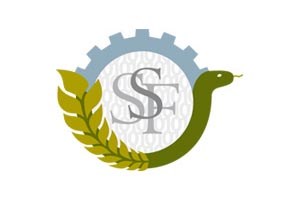Contact
caroline.grabbe@slu.se, +46 (0)90 786 8389, +46 (0)72 236 56 70

The Swedish Foundation for Strategic Research (SSF) – An independent funder of research in natural sciences, engineering and medicine
The Swedish Foundation for Strategic Research (SSF) was formed in 1994 with the mission to support the formation of strong research environments and research with a potential to strengthen the competitiveness of Swedish industry. With an annual budget of around 700 million SEK, SSF regularly announces calls for industrial doctorates, individual grants for future research leaders (FFL), funds to stimulate strategic mobility between sectors, and large framework grants in thematic areas. Within their areas of priority, including natural sciences, technology and medicine, SSF is during 2017-2021 specifically emphasizing research in the following focus areas:
1. Framework grants
Large research grants for multidisciplinary collaborative projects in various thematic areas, often in the order of SEK 25-30 million (up to SEK 60 million). Calls for framework grants are published continuously on the SSF website and are usually addressed to research groups consisting of 4-10 researchers from different scientific disciplines, preferably with strong links to other sectors.
2. Strategic Research Centers
Grants for new strong research environments in strategically important areas, where several independent, preferably co-located, research groups at a university or research institute work together to solve an important research question. Strategic research centers should be led by a center leader, with the help of a steering group and a scientific advisory board. Granted research centers typically receive funding for 6-8 years, with a grant level of SEK 7-10 million per year. Half-time evaluation may be applied.
3. Future Research Leaders (Framtidens forskningsledare, FFL)
Individual career grants for young promising researchers with strong potential to become international leaders in their respective fields of research. The FFL is advertised every third year (2018, 2021, 2024…) and in order to apply you must have received your PhD 4-7 years before the deadline of the call, and be maximum 39 years old. FFL is a career program where researchers who are granted funds, in addition to a standard amount of SEK 12 million for five years, get to participate in a tailor-made leadership program designed for future research leaders.
4. Strategic mobility
Grants supporting mobility between different sectors, where you as a researcher can apply for salary costs (maximum SEK 1,500,000) to work 4-12 months in another sector, such as within industries, public authorities or an organization. The exchange can be divided into several periods, but must be carried out within a two-year period. SSF strategic mobility is announced once a year, usually with deadline in September.
5. Industry Doctoral Students
To promote the interaction between academia and industry, SSF grants funding for around 12 industrial PhD students annually, with a maximum of SEK 2,500,000 for 4-5 years. The grant is individual and requires that the doctoral student must be admitted at a Swedish university, be employed to at least 80 % by a company, and have two supervisors - one in academia and one from the company. Deadline is usually in the spring.
6. Other funding opportunities (irregular calls)
SSF offers full coverage of direct costs, but allows a maximum coverage of indirect costs on salaries and operational costs of 35%. For some grants (including FFL and most framework grants), SSF adopts the rule that only 25 % of the main applicant’s salary can be covered by the grant and that this amount should not exceed 25% of the total grant, whereas salaries for PhD students, post docs and technical staff is fully covered. Hence, overshooting OH-costs, as well as salaries for applicants, may require co-funding from other sources.
Both FFL and SSF framework grants are prioritized by SLU, and are thus included in the list of grants subjected to central co-funding. Please note that you need to submit a pre-application for co-funding to medfinansiering@slu.se, latest two weeks before the deadline for the call.
All applications to SSF should be submitted directly to SSF via the SSF application portal.
Most applications follow a similar format, but detailed instructions for each separate call need to be consulted in the call text and information posted directly within the application portal (i.e. you need to log in and initiate your proposal in order to access all information).
Commonly, SSF uses the following evaluation criteria;
For some grants, including FFL, SSF performs interviews of the top ranked candidates.
If you have questions about applying to SSF, please contact Grants Office at grantsoffice@slu.se. For FFL and SSF framework grants, you may also request support from one of the Grants Office research coordinators.
Budget
Please contact the Financial Officer/Administrator at your department for support with making the budget for your SSF project in the SLU project calculator.
Most SSF projects are subjected to yearly, midterm- and final reporting, which is web-based and submitted through the application portal.
caroline.grabbe@slu.se, +46 (0)90 786 8389, +46 (0)72 236 56 70